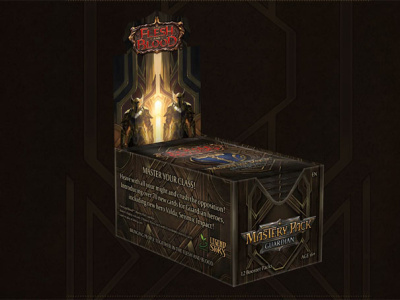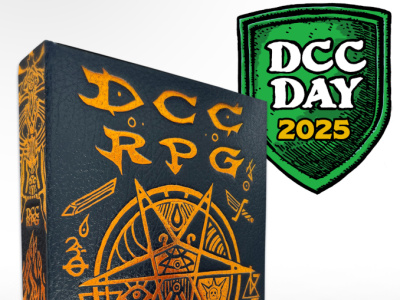Rolling for Initiative is a weekly column by Scott Thorne, PhD, owner of Castle Perilous Games & Books in Carbondale, Illinois and instructor in marketing at Southeast Missouri State University. This week, Thorne poses four hypothetical marketing questions for retailers to ask themselves before they offer a new gaming item in their store.
If you are going to sell something to someone, anyone, whether it be manufacturer to distributor, manufacturer to retailer, or retailer to consumer, you have to answer these four basic questions (there may be more the customer has on their mind but there are always at least these four):
What is it? What are you selling? Be able to give a brief description of the product, service or idea, and make sure you describe it in terms that the customer understands. In other words, avoid gaming jargon unless you are certain your customer understands. For example, an experienced board gamer would immediately know what you are talking about if you say that games like Agricola or Manhattan Project: Energy Empire are both very good worker placement games. Someone unfamiliar with the various categories of tabletop games will look blankly at you until you reframe the game in terms they understand.
How much does it cost? For all the talk about how game stores and the Industry sell premium play experience and fun, all members of the supply chain are in the business of selling stuff, and our customers want to know how much it will cost them. "Showrooming" (looking at something in a physical store then purchasing it more cheaply online) is a concern and a significant number of customer will do so, but given that only about 10% of purchases overall are made online, the number that chooses to do so is comparatively small. I touched on this in last week’s column, but it appears that game pricing is shifting downward with the premium-priced games selling through Kickstarter while the more pocketbook-friendly ones moving are through the traditional supply chain (See "Two More Trends to Wrap This Up").
Why Should I Believe You? Here is where your reputation as a knowledgeable part of the Game Industry comes into play. Game stores act as gatekeepers and filters for the hundreds of games that launch every year. No one can reasonably expect you to stock them all (although you will encounter customers regularly that express surprise that you do not carry their favorite game or the obscure one that hit the market three years ago), but they do expect stores to be able to recommend or suggest games. Similarly, if you are a publisher, as a distributor, retailer, or end user, why should I believe that your game is any good? The first thing to look at is the track record: Do your games come out when you say they will? Do you use quality components? H as gameplay been fun and balanced in the past? If you do not have a track record, then you need to push to get positive reviews of your game or emphasize the credentials you bring to the game such as time in the Industry or experience in other fields that you bring to the game design.
What’s In It for Me? Why should I buy your game when there are so many other games (not to mention forms of entertainment) competing for both my dollars and attention? I remember a small publisher years ago trying to sell me their new RPG with “It’s like Dungeons and Dragons, but better.” When I asked how it was better, they responded with character skills, more flexibility in character creation, and other aspects, many of which the new edition of D&D had already incorporated. The customer wants to know why they should spend their hard-earned money on your game. How will buying it benefit them, when they could spend that money on things like movie tickets, video game loot boxes, or a nice dinner? Sell the relative advantage compared to other options.
The customer will likely have other questions, but these four are always at the top of their mind and the better a publisher or retailer does at answering them, the more likely you will make another sale.
The opinions expressed in this column are solely those of the writer, and do not necessarily reflect the views of the editorial staff of ICv2.com.

Column By Scott Throne
Posted by Scott Thorne on October 13, 2019 @ 10:06 pm CT
MORE GAMES
Shop Talk, July 2025
July 25, 2025
All this and more in this month's edition of Shop Talk, our roundup of retailer news.
Supplementary Booster Set for the Guardian Class
July 25, 2025
Legend Story Studios will release Mastery Pack Guardian, a supplementary booster set for Flesh and Blood TCG, into retail.
MORE COLUMNS
Column by Rob Salkowitz
July 21, 2025
Columnist Rob Salkowitz lays out the Comic-Con panels of interest to industry professionals, current and aspiring creatives, educators, librarians and retailers.
Column by Scott Thorne
July 21, 2025
This week, columnist Scott Thorne offers up more thoughts on the "Diamond Mess," and discussed DCC Day results.








